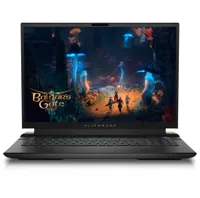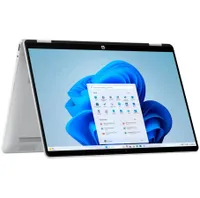EOFY laptop sales 2026: here's everything you need to know to score a great deal on 2-in-1s, gaming laptops, student picks and more
It's a while yet till the June 30 deadline, but we hope to see big discounts from brands like Apple, Dell, Lenovo, HP, Acer and more
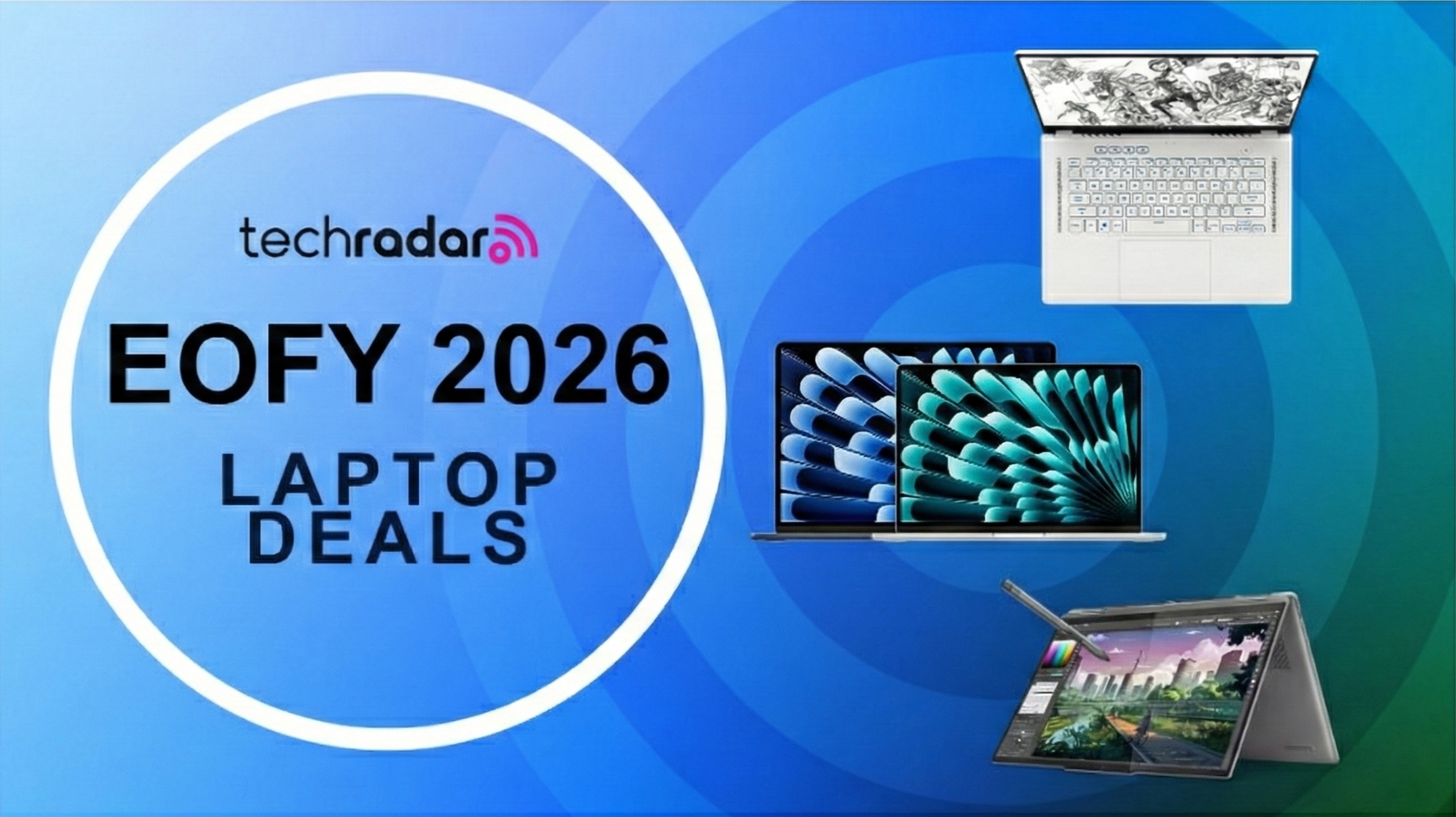
Sign up for breaking news, reviews, opinion, top tech deals, and more.
You are now subscribed
Your newsletter sign-up was successful
EOFY 2026 is still a ways out, and you have until June 30 to buy and claim on this years tax. Retailers aren't yet offering specific EOFY sales – these usually start in late May and early June.
The deals usually continue into July too. As a comparison, in 2025 after the main sale, we saw some great bargains as retailers cleared out old stock to make way for newer models.
Need a laptop right now? Check out our dedicated laptop deals page, as well as the list of the current best retailer sales below.
It's also worth a peak at the TechRadar discount coupons for extra savings, or jump to our coupons section below to learn more.
Key dates for the 2026 EOFY sales
- Sale starts: June 1
- Early deals: late May
- EOFY sales end: midnight June 30
- Late deals: early-to-mid July
The best EOFY retailers
- Lenovo: big discounts on laptops
- HP: loads of deals on 2-in-1s, AIOs and more
- Kogan: deals on everyday and gaming laptops
- The Good Guys: deals on Acer, HP, Lenovo, Microsoft and more
- Amazon: a range of laptops with fast delivery
- Dell: best-price offers before and during EOFY
- eBay: some excellent deals
- JB Hi-Fi: shop big discounts on laptops
- Mwave: save on Asus, HP, Lenovo and more
- JW Computers: great deals on a range of laptops
All the big brands have great after EOFY deals on offer, and to make it easier to find the best, we've rounded up our favourites below.
Can't find what you want? Check out our guides to the best laptops, plus the best gaming laptops.
2025 deal examples
Wondering what deals we see in 2025? We have included some of our favourites below.
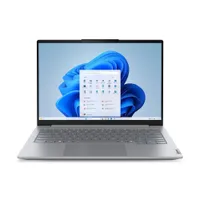
Read moreRead less▼
This is a cracker of a deal, considering the ThinkBook G8 was AU$1,749 not long ago. Especially since you get the powerful new Series 2 Intel Core 240H CPU, 32GB of RAM and a fast NVMe 512GB SSD. The only downside is the display, with a 1920 x 1200 resolution and 45% NTSC colour. But if you are connecting it to an external display (or three) via HDMI or Thunderbolt 4, then you won't care.
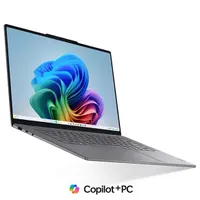
Read moreRead less▼
Need a slim but still powerful laptop? The Yoga Slim 7i Aura features the new Series 2 Intel Core Ultra 7 258V CPU, a compact 14-inch 2800 x 1800 OLED display, plus premium features like a facial recognition webcam and Wi-Fi 7. You can also get the Ultra 5 228V version with 32GB of RAM and a 512GB for just AU$1,599.
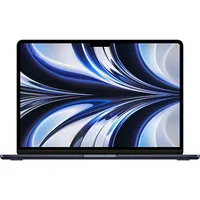
Read moreRead less▼
The MacBook Air M4 rarely goes on sale, so while this discount doesn't seem like much, it's not far off as good as it gets for an Apple product. Want to know more about the laptop?
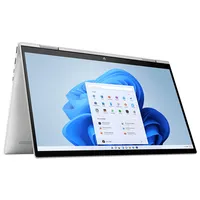
Read moreRead less▼
Ignore the inflated RRP, but for the spec, this is a decent price for a versatile 2-in-1 HP Envy x360. It features an efficient Intel Ultra 7 155U CPU along with 32GB of RAM and 1TB of storage. Plus, of course, a 1200p 16-inch touchscreen that conveniently folds through 360 degrees. Use the code FUTURE5 at checkout to get the full discount.
Gaming laptop deals
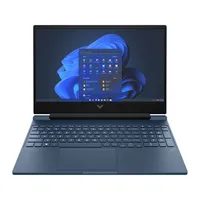
Read moreRead less▼
The Victus 15 is often sold around the AU$1,500 mark, and is currently full price at AU$2,199 from HP, so this is a fantastic deal for a Core i5 RTX 4050 machine, as it's more than capable of decent frame rates on the 15-inch, 1080p, 144Hz screen.
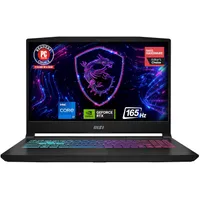
Read moreRead less▼
This laptop pairs a decently powerful RTX 4060 GPU with a 144Hz, 1920 x 1080 display to give smooth gaming at an affordable price. While it is found elsewhere for around AU$1,499, and often sold for that on Amazon, this is still a solid deal.
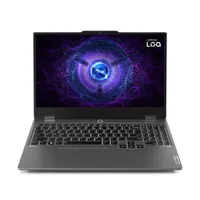
Read moreRead less▼
This affordable gaming laptop is currently 37% off the admittedly overly high list price, but it's a reasonable mid-range buy at this discount. Working alongside the RTX 4050 GPU, the LOQ has a Ryzen 5 CPU and 16GB of RAM. It's not exactly the most powerful machine, but is good enough for very playable frame rates on the 1080p, 144Hz display.
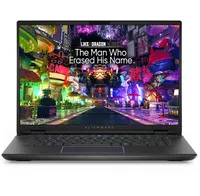
Read moreRead less▼
Dell doesn't give a before price, but we've tracked this m16 R2 at AU$3,311 all year, and then it dropped to AU$2,910.60, and now AU$2,610.30. You can then reduce that to AU$2,270.96 using code XPSAWAU13 at checkout. While the m16 R2 isn't the cheapest machine, that's pretty good for a premium 16-inch RTX 4070 equipped gaming laptop.
Coupons and discount codes
It's worth browsing our full list of computing coupons, but we have also included our favourites below.
Or, if you're looking to save on other purchases, explore our full list of coupon categories – covering electronics (from TVs to earbuds and everything in between), mobile phones and even services like VPNs.
Read moreRead less▼
Dell has some great coupons this year, with savings on XPS and Alienware machines, as well as monitors and desktops.
To generate the coupon, just follow the links below and click the GET CODE button.
Save up to 13% off selected XPS and Alienware laptops and desktops
Read moreRead less▼
You can save even more on select HP models using the below code.
How to choose the best laptop deal for EOFY 2026
During end-of-financial-year sales, there will be plenty of discounted laptops to choose from. It is not a purchase you make every day, so if you are unsure about CPUs, GPUs or other specs, you are not alone.
We are here to help you find the right device, whether you are deciding between brands, specs or laptop types. There will be plenty of eye-catching deals at tax time, but if a price looks too good to be true, it probably is.
Often, the cheapest deals are older models that may struggle to keep up over the next few years, meaning that you could end up upgrading sooner than planned.
To help you avoid that, we have put together a quick guide below so you can make an informed choice and score the best laptop deal this June.
Features to look for
Brand name:
One of the first things to consider when buying a laptop is the brand. Since a laptop is a significant investment, it makes sense to choose a brand you know and trust, such as Apple, Dell, HP, Lenovo, Microsoft, Acer or Asus.
Be cautious with unfamiliar brands, even if they seem like a bargain. The initial saving might not be worth it if the laptop has reliability issues or limited support down the track.
Size and portability:
Once you have decided on a brand, the next thing to consider is the size of the laptop. Most models come with screen sizes between 13 inches and 17 inches. Smaller laptops are usually more portable and often more affordable – though not always, as premium models like the XPS 13 show.
Larger laptops offer more screen space, and their bigger chassis can house more powerful components and larger batteries, making them a good choice for gaming, creative work or heavy multitasking. You can usually find the screen size listed in the laptop’s name – for example, the HP Laptop 17-cn3028TU has a 17-inch display.
Weight is also important, especially if you need to travel or commute with your laptop regularly. For easy portability, look for a compact notebook or 2-in-1 that weighs around 1.5 kg or less.
Technical specifications:
– Processor (CPU)
2025 and early 2026 have been packed with major CPU launches. Apple’s M4 and new M5 chips power the latest MacBook Air and Pro models, offering faster performance and better efficiency. Older M series MacBooks are still great picks, and you may find discounted M2 too.
In Windows laptops, Intel’s new Series 3 Core Ultra processors are now available, delivering big upgrades in speed, graphics and battery life. Older Core Ultra and even 14th Gen Intel CPUs also offer decent value, though the latter tends to fall short when it comes to battery life.
AMD’s Ryzen series chips compete strongly for both performance and efficiency, especially in ultraportables. We have also seen loads of laptops with Qualcomm’s Snapdragon X Series processors, offering great battery life and excellent performance, though availability and pricing varies.
– System Memory (RAM)
16GB RAM is now the standard across most new laptops, including all new MacBooks. While 8GB is still available in some cheaper models, 16GB is a much safer choice. If you plan to game, edit videos or run demanding apps, look for 32GB, or even 64GB.
– Storage
Almost all laptops now use solid-state drives (SSDs) for faster boot times and better reliability. 256GB is a typical starting point, but 512GB or 1TB is recommended if you work with large files or just want extra space.
– Graphics (GPU)
Integrated graphics are more powerful than ever, with Intel Lunar Lake and AMD Ryzen iGPUs delivering excellent everyday performance. For heavy gaming or creative work, go for a discrete GPU like an Nvidia GeForce RTX, but be prepared for higher costs and a bigger, heavier laptop.
Display:
Most mid-range laptops now come with a Full HD (1920 x 1080) screen (or better), but 16:10 aspect ratios and 1920 x 1200 resolutions are becoming more common, offering extra vertical space that makes browsing and multitasking easier. We recommend avoiding anything under 1920 x 1080 unless you are shopping for a very low-cost laptop.
For the best balance of sharpness, battery life and performance, a 2.5K (2560 x 1440) or 2.8K (2880 x 1800) resolution is ideal. It delivers a noticeably crisper image without the heavy battery drain or performance hit of a full 4K (3840 x 2160) display, which is often overkill for a standard laptop.
OLED panels are also appearing more often, offering rich colours and deep blacks. However, they can be more expensive, use more power, and may be prone to burn-in over time.
Overall, it is often better to prioritise a good screen with solid battery life over chasing the highest possible resolution, especially for everyday use.
Sign up for breaking news, reviews, opinion, top tech deals, and more.

Lindsay is an Australian tech journalist who loves nothing more than rigorous product testing and benchmarking. He is especially passionate about portable computing, doing deep dives into the USB-C specification or getting hands on with energy storage, from power banks to off grid systems. In his spare time Lindsay is usually found tinkering with an endless array of projects or exploring the many waterways around Sydney.
You must confirm your public display name before commenting
Please logout and then login again, you will then be prompted to enter your display name.
